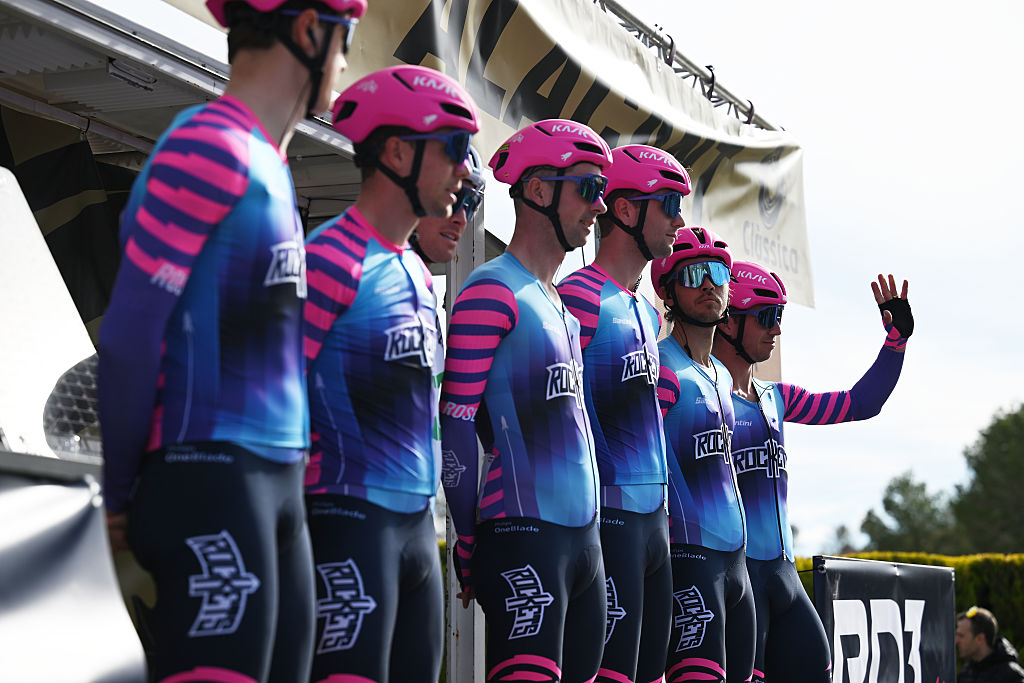UCI to consider extreme weather protocol
Governing body not specifically addressing ANAPRC proposal
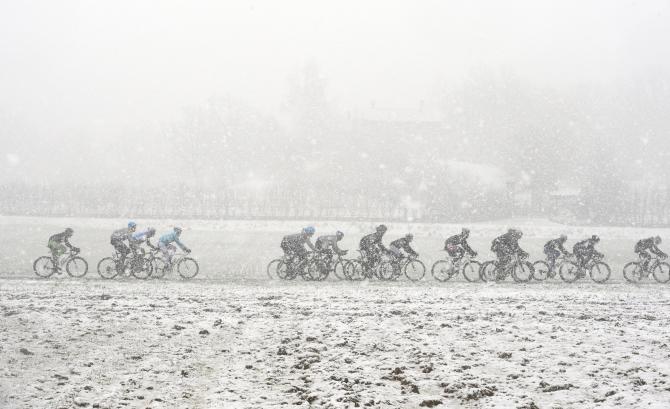
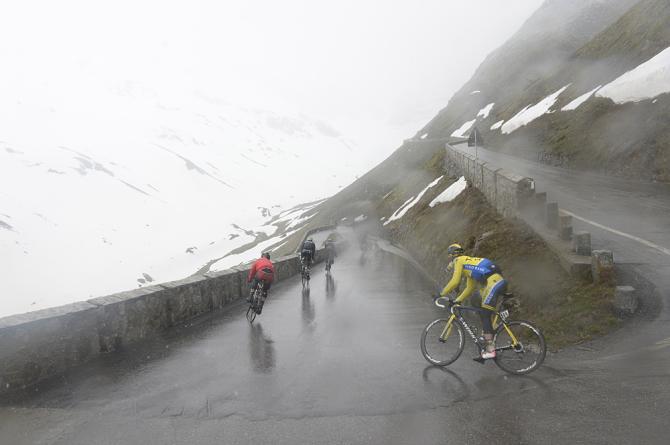
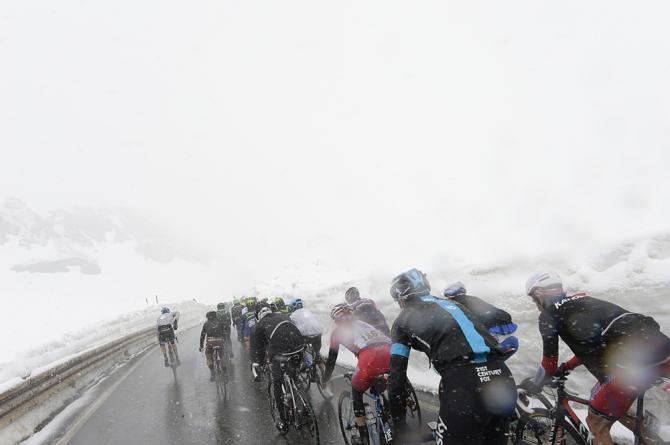
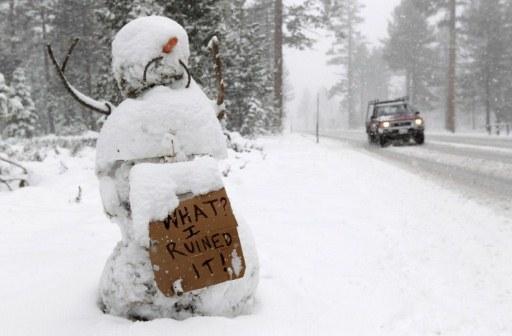
The UCI said it is working with its key stakeholders to develop protocols for handling extreme weather situations in professional races, but it did not specifically state whether it would be considering the proposal submitted by the new Association of North American Pro Road Cyclists (ANAPRC) earlier this month.
Riders protest wintry conditions in Vuelta Castilla y Leon
Gallery: Storm of controversy as Giro d'Italia finds winter atop Gavia, Stelvio
Quintana defiant in the face of Giro d'Italia Stelvio fall-out
North American riders create representative association
Bookwalter backs the creation of North American riders' association
Riders' weather protest falls on deaf ears in Etoile de Besseges
"The UCI considers the safety of riders as an absolute priority and is therefore taking this issue very seriously," a UCI spokesman told Cyclingnews. "We are currently working with key stakeholders to agree [to] protocols to be adopted if a race is affected by extremes of temperature, precipitation etc. We intend that this be approved very quickly as we are conscious of the need for clear guidelines for organisers, teams and riders on this issue."
The ANAPRC was formed earlier this year under temporary president Christian Vande Velde and interim executive director Michael Carcaise. The move was a reaction to the stage in last year's Giro d'Italia that went over the Stelvio, and the botched attempt at neutralising the stage. Some riders claimed that the poorly communicated neutralisation led to an unfair advantage for eventual winner Nairo Quintana.
Numerous other races have been affected by harsh weather, some being cancelled, while others went forward in conditions that were brutal and sometimes dangerous for the riders. The ANAPRC developed a detailed extreme weather protocol, which it hopes the UCI will adopt, in collaboration with Cannondale-Garmin physicians Kevin Sprouse, Phil Stawski and Prentice Steffen. They asked the UCI to consider adopting a system to monitor weather conditions, and to set guidelines that would result in the automatic adoption of an alternate plan for a race or stage route, either by shortening, re-routing, neutralizing or cancelling the race or stage.
The ANAPRC proposes a cutoff of 3 degrees Celsius or lower combined with rain or wet snow, and any race affected by weather at or below those temperatures and conditions would automatically trigger a "plan B". Their proposal does not cover exactly how the UCI commissaires, race organisers and team managers would handle communicating the decisions based on the weather, and allows the race directors to come up with their own contingency plans for the stage or race.
"UCI Commissaires and race organizers will work together closely to monitor weather conditions, and maintain an ongoing discussion about how/when contingency plans would be triggered if a threshold temperature rule was in place, and how the plan would be communicated to teams, riders, broadcast partners, media, etc," the ANAPRC proposal stated.
Speaking at the Dubai Tour, board member Brent Bookwalter emphasised that the group wants to collaborate with the UCI, race organisers and teams, not be combative. “For me a big driving force for wanting to be involved is to avoid another Stelvio stage. I don't want the sport or the riders to go through something like that ever again,” Bookwalter told Cyclingnews.
The latest race content, interviews, features, reviews and expert buying guides, direct to your inbox!

Laura Weislo has been with Cyclingnews since 2006 after making a switch from a career in science. As Managing Editor, she coordinates coverage for North American events and global news. As former elite-level road racer who dabbled in cyclo-cross and track, Laura has a passion for all three disciplines. When not working she likes to go camping and explore lesser traveled roads, paths and gravel tracks. Laura specialises in covering doping, anti-doping, UCI governance and performing data analysis.
